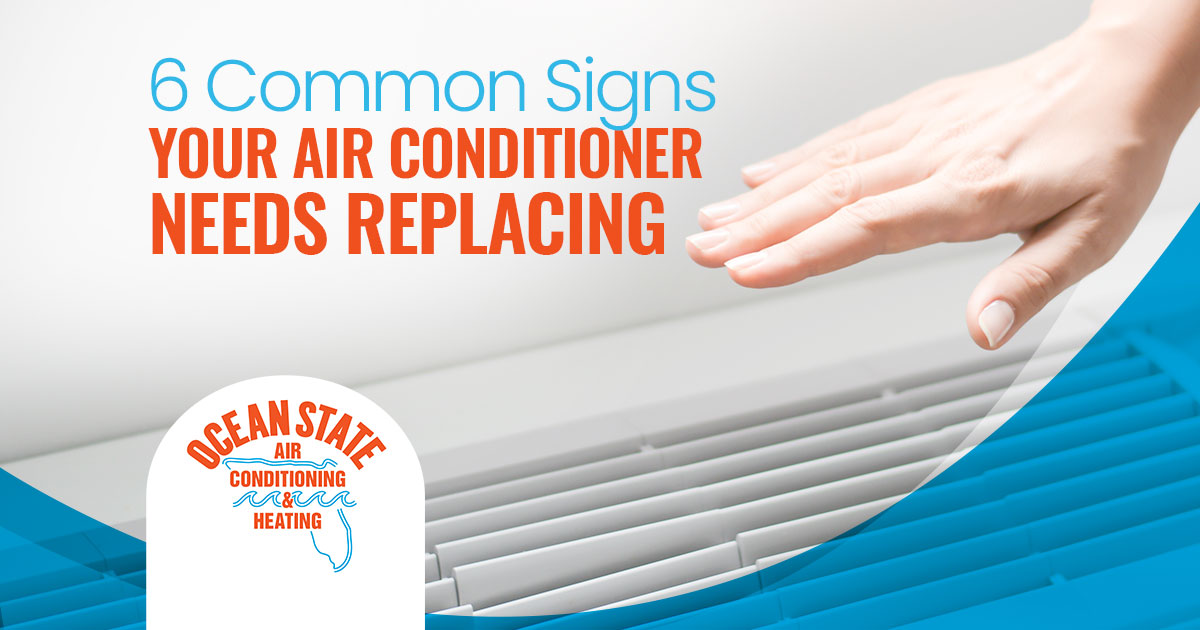Air conditioners don’t last forever. If your unit is regularly serviced and maintained, you’re getting the most out of its performance. It can be difficult to tell when you need a new unit, as opposed to a repair, but having a plan ahead of time is going to ensure you always have a working air conditioner to keep you cool during those hot summer months. Here are six common signs your air conditioner needs replacing, and ways you can tell it needs to be replaced before it’s too late.
Lack of Cool Air
You probably don’t need us to tell you this is a sign your air conditioner needs more than its scheduled maintenance call. Your body reacts differently to indoor temperatures, even when it varies by just a few degrees. If you believe your home is a little warmer than usual, go to the air conditioner and feel the air coming out of the vents. If it’s not at least somewhat cool, or if it’s warm to the touch, it might be time to replace your air conditioner.
History of Repairs
Air conditioners typically have a lifespan of about 15-20 years. If your unit is older than that and it’s been serviced multiple times by a licensed technician, it could be more cost-effective to replace the unit rather than continue to make expensive repairs. And with many companies offering rebates on high-efficiency systems, it could be more costly to continue repairing an old unit rather than purchasing a brand new air conditioner.
Limited Air Flow
Your air conditioner is responsible for distributing cold air through your house by means of ductwork that connects individual rooms. But if your unit is malfunctioning past the point of simply needing repair, that airflow is reduced considerably. Turn off your air conditioner and open the unit to check the blower blades. Wipe away any excess dust and turn it back on. If your air conditioner is still malfunctioning, it could mean you’re in need of a new motor—and over time that could become more expensive than simply replacing the unit.
Unusual Sounds and Smells
A properly functioning air conditioner is a lot like the plumbing in your house or the brakes in your car—you only really notice them when they’re not working. If your air conditioning unit is operating like it’s intended, you might even forget it’s there. But if you hear rattling, squeaking, or grinding, it could mean that your indoor air quality is suffering. Likewise, the air coming out of your unit’s vents should always smell clean or there should be no noticeable odors. If your air conditioner starts to smell moldy, smoky, or otherwise unclean, replacing your unit could be your best option.
Moisture Build Up
Air conditioners keep your home feeling comfortable by taking in warm air, cooling it, and blowing it back inside. Leftover moisture is a byproduct of this process, and a little water drippage isn’t uncommon for a working unit. But as your air conditioner gets older it loses some of its efficiency, making your home feel stuffy and warm. If your windows begin to fog up, or if there’s excess moisture or mildew around your vents, it could mean it’s time to replace your air conditioner.
High Energy Bills
All over the country, energy costs are increasing. But sometimes that’s the result of a faulty air conditioner. As the age of your unit goes up, the efficiency goes down, and it needs to work harder and longer to maintain the same level of production. Upgrade to a new unit and you could save on energy bills for years to come.

